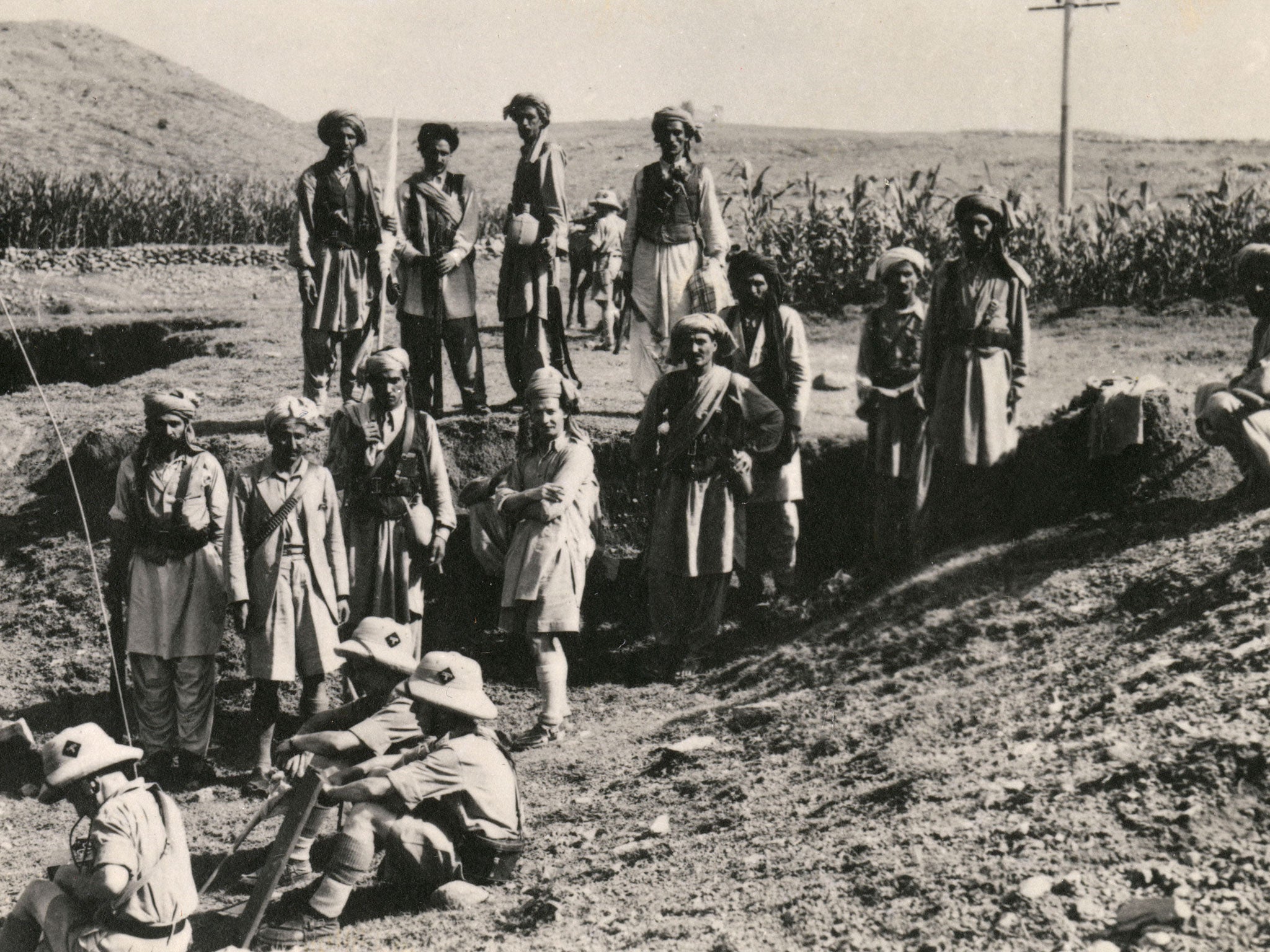The Raj At War: A People's History of India's Second World War by Yasmin Khan, book review
Yasmin Khan's history of a country's defining moment is both epic and intimate

"But what does India have to do with this? The Europeans have always been at each other's throats. What difference does it make to us? We're slaves still and always will be..." So the female protagonist of Ismat Chughtai's Urdu novel The Crooked Line responds to news of the invasion of Poland in 1939. Published in 1945, when memories of the war were still raw, the novel records the voices and feelings of the period's liberal intelligentsia.
There are echoes of Chughtai's heroine in many the characters in The Raj at War, Yasmin Khan's splendid and multivocal account of India's Second World War. With victory approaching, radical writer Khwaja Ahmed Abbas (who was, like Chughtai, a vocal anti-fascist) wanted to make Mahatma Gandhi "an ally of the allies" when the latter was freed from imprisonment in 1944. Abbas supported the war against the Japanese but, like many of his contemporaries, he was conflicted, confused and "bitterly exhausted by the imperial power".
India had been transformed by then. The freedom struggle had peaked; those who had ambivalently backed India's contribution to the war effort on ideological grounds now looked forward to their independence. Others, who had felt from the start that it wasn't India's war, were gaining greater support. In capitalist quarters, entrepreneurs whose wealth had increased during the war years by means scrupulous and unscrupulous were anticipating even greater profits in an independent, albeit divided, country.
Khan's gruelling but richly readable book takes apart and rewrites the conventional narratives of imperial historians. In spite of sympathy among some politicians and loyalists, Indian opposition to the war was there from the start, along with a recognition that the country stood a fair chance of achieving independence if it supported the war effort.
The grand players in the struggle for freedom, Nehru, Gandhi and Jinnah, are present here but mostly offstage: the author's interest, as the subtitle indicates, is largely in ordinary people. One of the most charismatic protagonists in this epic without heroes is Aruna Asaf Ali, who preached rebellion and subversion across the country while her ambivalent lawyer husband stayed in prison, hearing in consternation of his wife's dangerous pursuits. At the end of the war, however, he defended the rebels of the Indian National Army, who, under the leadership of Subhas Chandra Bose, had supported Japan: like many others, including Nehru, he believed that INA members had served, and would continue to serve, India and the cause of freedom.
Democratic in her approach and largely suspicious of grand narratives, Khan tells her stories from the ground upwards; she is particularly sensitive to the anonymous hordes of women who worked and waited for their men to return, as well as those who were tempted by – or afraid of – the advances of the vast number of soldiers garrisoned in India. Male and female, subalterns and secretaries, prisoners of war and intellectuals: voices consigned to a long silence are finally rescued from oblivion. Though Khan's main focus is on Indian participants, we also meet western observers, Polish refugees and American runaways. While she doesn't deny India's gains from the conflict (both moral and financial, depending on the interested parties), her chronicle is, in the main, tragic.
To attempt to summarise the war's events here, from the mass exodus from Burma to the famine in Bengal, would be doing an injustice both to the magnitude of the tragedies that this seminal and timely book reconstructs, and to its author's stern but even-handed indictment of the colonial power that exploited India before, during and after its war.
Subscribe to Independent Premium to bookmark this article
Want to bookmark your favourite articles and stories to read or reference later? Start your Independent Premium subscription today.

Join our commenting forum
Join thought-provoking conversations, follow other Independent readers and see their replies